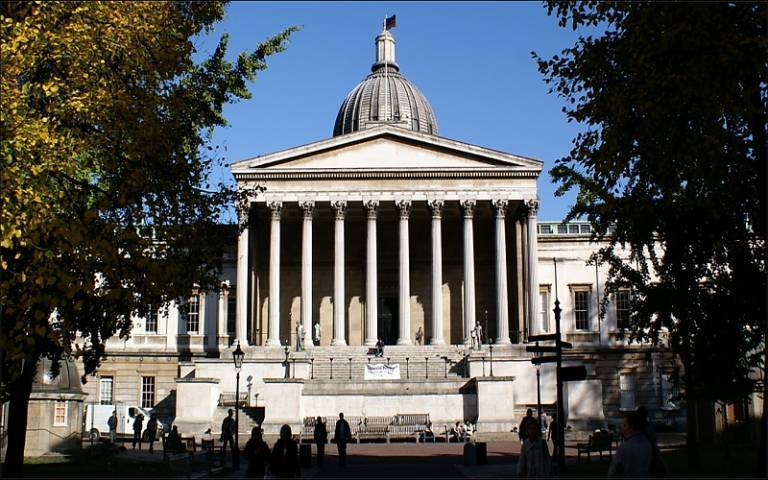Hot weather advice for UCL staff and students
16 July 2022
With temperatures forecast to rise to the high 30s next week, we advise students and staff to study and work at home where possible and take additional steps to stay safe.

High temperatures of up to 30 degrees or more are forecast in London for several days next week, with a red warning in place for extreme heat from Sunday 17 July to Tuesday 19 July. Transport for London have advised customers to only travel if essential on Monday and Tuesday and have warned that they will be running a reduced service which could mean journeys will take longer than usual.
For roles that do not require you to work or study on site, we advise you work from home on Monday 18 July and Tuesday 19 July when the highest temperatures are forecast. If you wish to come to campus because it might be cooler than working from home, you are welcome to do so with UCL open as normal, including the libraries and Student Centre - but please do check library opening times before travelling.
For staff for whom it is essential to work on site, we recommend you consider flexible working so people can work and travel at more comfortable times. If your role requires you to work in the direct sunlight, please do take cover and speak to your line manager about the best way to do this. Front line teams will be provided with sun cream, water and have already been encouraged to wear looser fitting, more comfortable clothes and a head covering such as a hat.
During the hot summer conditions, the following measures to increase comfort should be adopted by individuals and departments:
- It may be obvious, but drinking plenty of water is often overlooked. It is recommended to drink between 1.5 and two litres per day. Take a bottle of water with you everywhere you go. There are water bottle refill stations around campus – find them using this map.
- During the heat of the day, keep windows closed, use blinds and temporarily move out of sunny areas. This may seem counter-intuitive, but during very high temperatures opening the windows will nearly always make it warmer inside, and reduces the effectiveness of any air conditioning.
- Wear looser-fitting, more comfortable clothes, rather than more formal office dress. If you have to go out in the sun, walk in the shade, apply sunscreen and wear a head covering such as a hat.
- Increase air movement; e.g. by using local fans, which can be equivalent to reducing the temperature by around 2ºC. If your fan is dust free and in good working order, it should be safe to leave on for long periods of time. But don’t leave a fan on overnight. You must also ensure all fans are regularly tested to ensure the electrics and mechanical connections are working well.
- Please remember to switch off equipment at your desk when you are not using it.
- There are more tips available on how to cope during periods of extreme heat on the NHS’s website and the Government’s Heatwave Plan for England.
- Transport for London have advised customers to only travel if essential on Monday and Tuesday and have warned that they will be running a reduced service which could mean journeys will take longer than usual. Those making essential journeys are advised to check before they travel, to carry water with them and not to board if they feel unwell.
- A network of more than 100 free water fountains around the city can be used to refill your water while travelling.
- If you or someone else has signs of heatstroke including a fast breathing or shortness of breath, a fit, loss of consciousness or is not responsive then we advise you to call 999.
We will be actively monitoring our buildings and other infrastructure with a focus on high-risk areas and working hard to help maintain appropriate workplace temperatures. If you experience cooling system failure, please raise a service request with the Customer Service Helpdesk. We will have extra teams on campus to provide priority response to any air conditioning and ventilation issues, and will respond in priority order.
As fire hazards increase during hot weather and the forecast heat levels in the UK are expected to be unprecedented, we encourage all staff to be extra vigilant about adhering to UCL’s fire and safety protocols. For example, if electrical equipment is non-essential, we encourage you to switch it off and unplug it to reduce the heat it gives out and help protect further from the hazard of fire. We will also be in touch with local departments with specific requirements, such as those that store chemicals and gas.
 Close
Close

